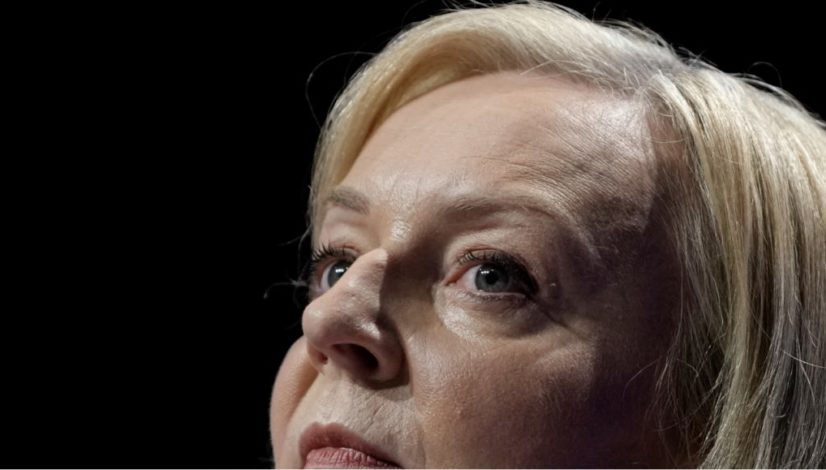The tragedy of Liz Truss’s downfall

She also vowed to boost investment in North Sea oil and gas production, and reverse the country’s ban on fracking, as the UK’s energy bills soar more than 50 percent from a year ago. Climate activists swooned in horror.
The swift fall of the embattled PM is a sad day for England, and for the developed world.
Liz Truss was elected to revitalize a sluggish country still hurting from Brexit, as well as from misguided energy and tax policies. The Conservative Party – her party – had occupied Number 10 Downing Street for 12 years, but had struggled to keep taxes low in light of growing social services demands, especially during COVID-19.
When Truss took office just weeks ago, inflation was at 10 percent, growth was slowing and real GDP was still below the pre-COVID level of 2019. The government’s debt was approaching 100 percent of GDP, and deficits were increasing. The month before she took office, the budget deficit was nearly twice what had been projected, the highest for any August on record.
In short, she inherited a mess.
Many businesses, and especially lucrative financial firms, fled London post-Brexit, fearful that England’s withdrawal from the European Union would prove burdensome to cross-border deals and hiring. It was a legitimate concern; the rules were unwritten, and in the fast lanes of international finance, transactions could not await the creation of the new order.
Some 7,000 jobs left the city; it was, for many firms, not an easy decision.
Truss wanted to lure them back, in part by removing the caps on banker bonuses imposed in the wake of the financial crisis. More broadly, Truss committed to lowering taxes, confident that such measures would encourage a wave of new start-ups and growth. Kwasi Kwarteng, Truss’s chancellor of the Exchequer, described the moves as essential to his “unashamedly pro-growth plan” for the economy.
Kwarteng released a “mini budget” outlining his ambitions, which included enticing foreign visitors with value added tax (VAT)-free shopping, postponing a planned corporate tax increase and modestly lower rates overall. The budget called for increased unfunded spending and, effectively, larger deficits in the short run.
The plan caused Kwarteng and Truss to be widely mocked and smeared; the mini budget was derided as reckless. Bond markets fed the criticism. English government bonds, called gilts, plunged in price as interest rates moved higher, causing wild volatility in normally stodgy markets and near-panic among traders.
Truss may have pushed a plan at the wrong time, when markets were especially jittery; proposing measures that would increase deficits in the near term was a mistake. But she is not totally to blame for the quick repudiation of her program, and her leadership. Pension managers, global central banks who condoned “free” money, the Biden White House and Federal Reserve Chairman Jerome Powell are also culprits in this story.
The reason for the crisis in markets was not only that lower tax rates would boost deficits, but also that pension managers had leveraged their bond holdings in order to meet their obligations to retirees.
Pensions borrowed against their gilt holdings to fund riskier investments, thus creating a scenario not unlike that which emerged during the financial crisis, when companies went bankrupt for leveraging their holdings of normally safe mortgages.
It is also true that because Biden and congressional Democrats pushed through trillions in unnecessary spending as the economy was already recovering from the COVID lockdowns, the Federal Reserve has jacked up interest rates, driving the dollar to an all-time high against the pound sterling. That did not help calm market jitters.
The Bank of England, faced with a market rout, stepped in to buy gilts that were being dumped wholesale as pension managers had to scramble to meet collateral demands. That rare intervention convinced investors and critics that Truss’s proposed policies were reckless.
So, is Liz Truss really the villain in this piece, or are the folks who engineered a period of excessively easy money and drove investors to risk-up their holdings really to blame?
It is an important question because developed economies, including the U.S., all require solid growth to fund the ever-greater demands of welfare states. It is also important in seeming to justify opposition to the low-tax, light regulation approach taken by U.S. Presidents Reagan and Kennedy, UK Prime Minister Margaret Thatcher and more recently, by President Trump.
So-called “supply-side” economics has notably spurred the most prosperous periods in our history. The guidance of those who encourage lower taxes and smaller government may be pivotal to getting the U.S. and Western Europe back on track after the heavy hits from COVID shutdowns and excess spending and, now, roaring inflation. Policymakers in the U.S. and elsewhere must begin to reverse the disastrous tsunami of government spending as we try to right our economic ship; the torching of Liz Truss’s program will argue against such a change in direction.
Unhappily, Truss’s economic agenda was poorly presented by a novice finance minister, who was quickly ousted, but the damage done to her credibility made her continued leadership impossible.
The Truss affair will go down as a lesson on fiscal sobriety, but cutting spending will not be part of the teachings. That is a tragedy.
Published on The Hill




